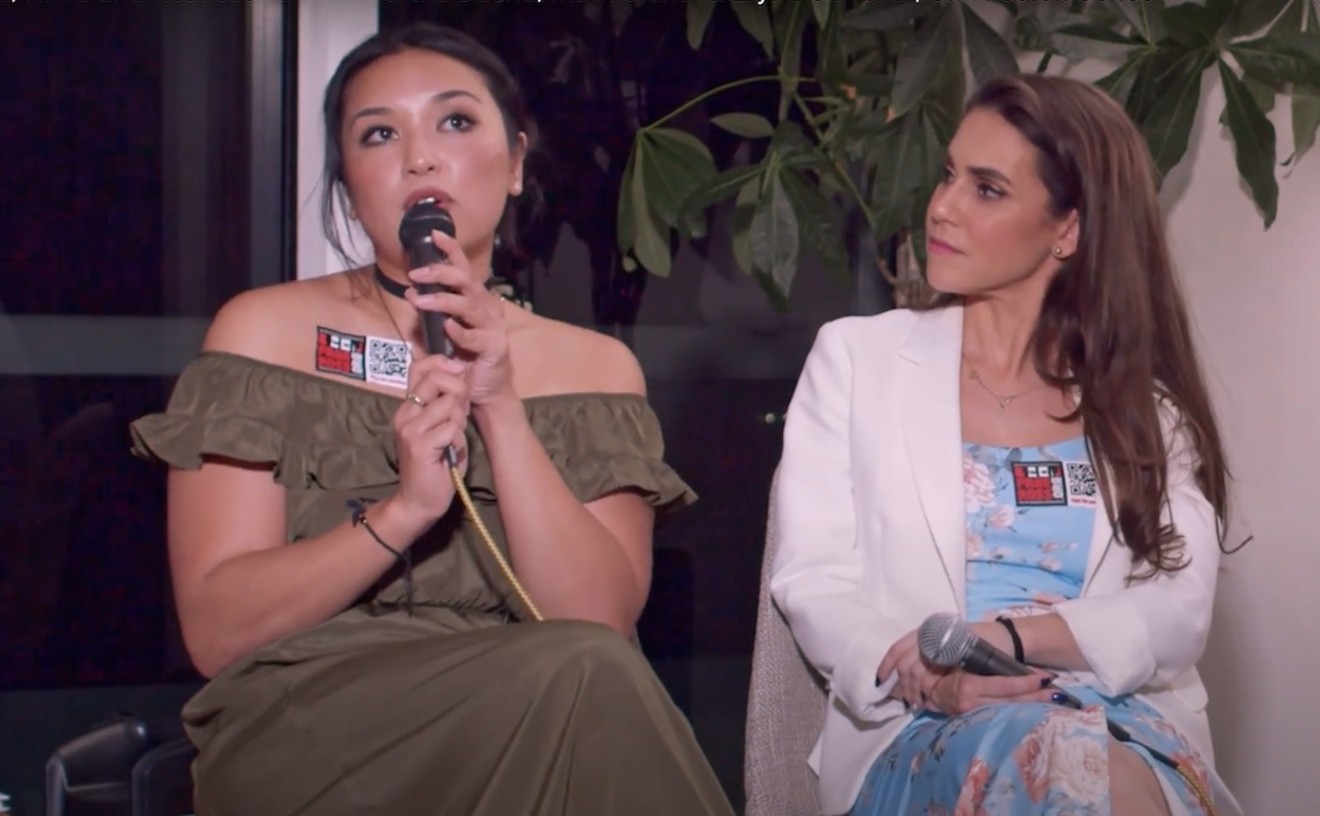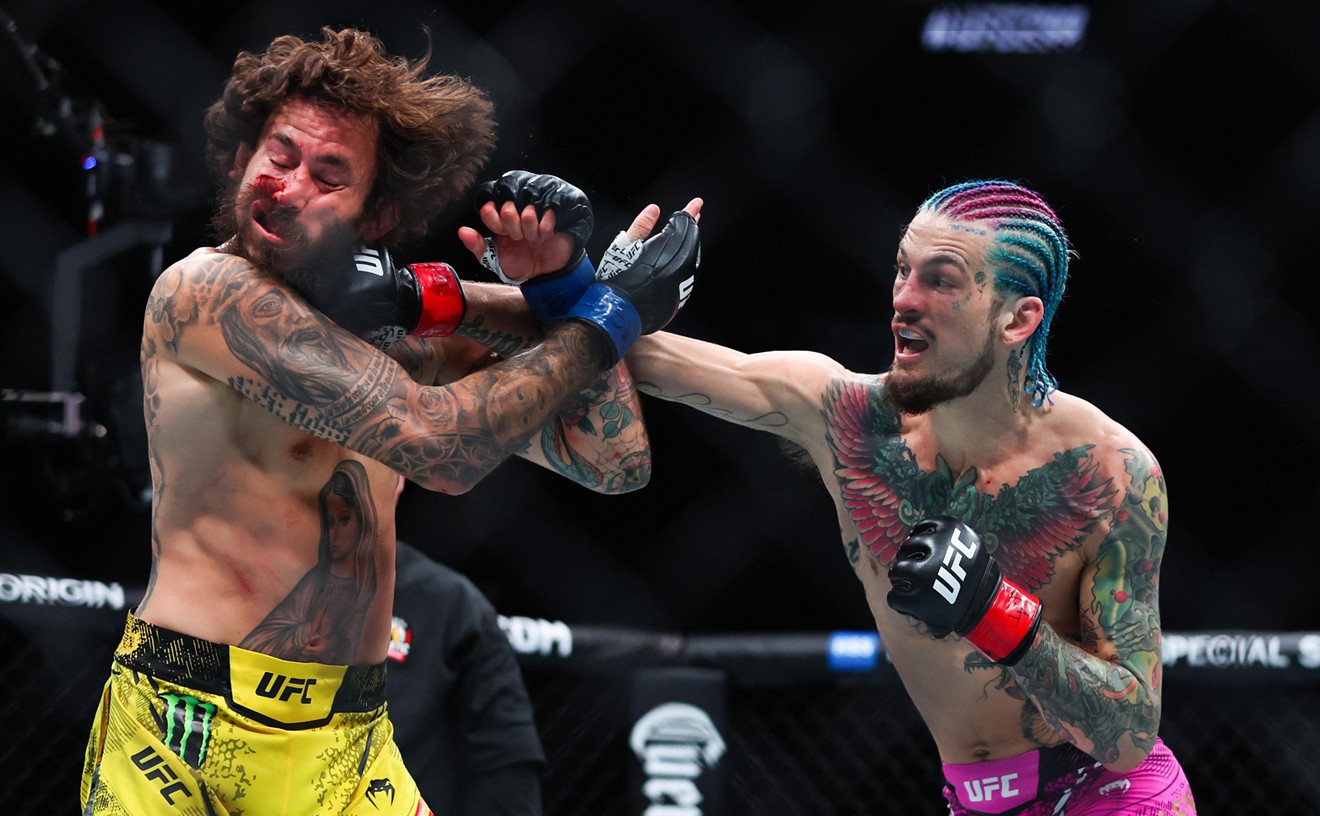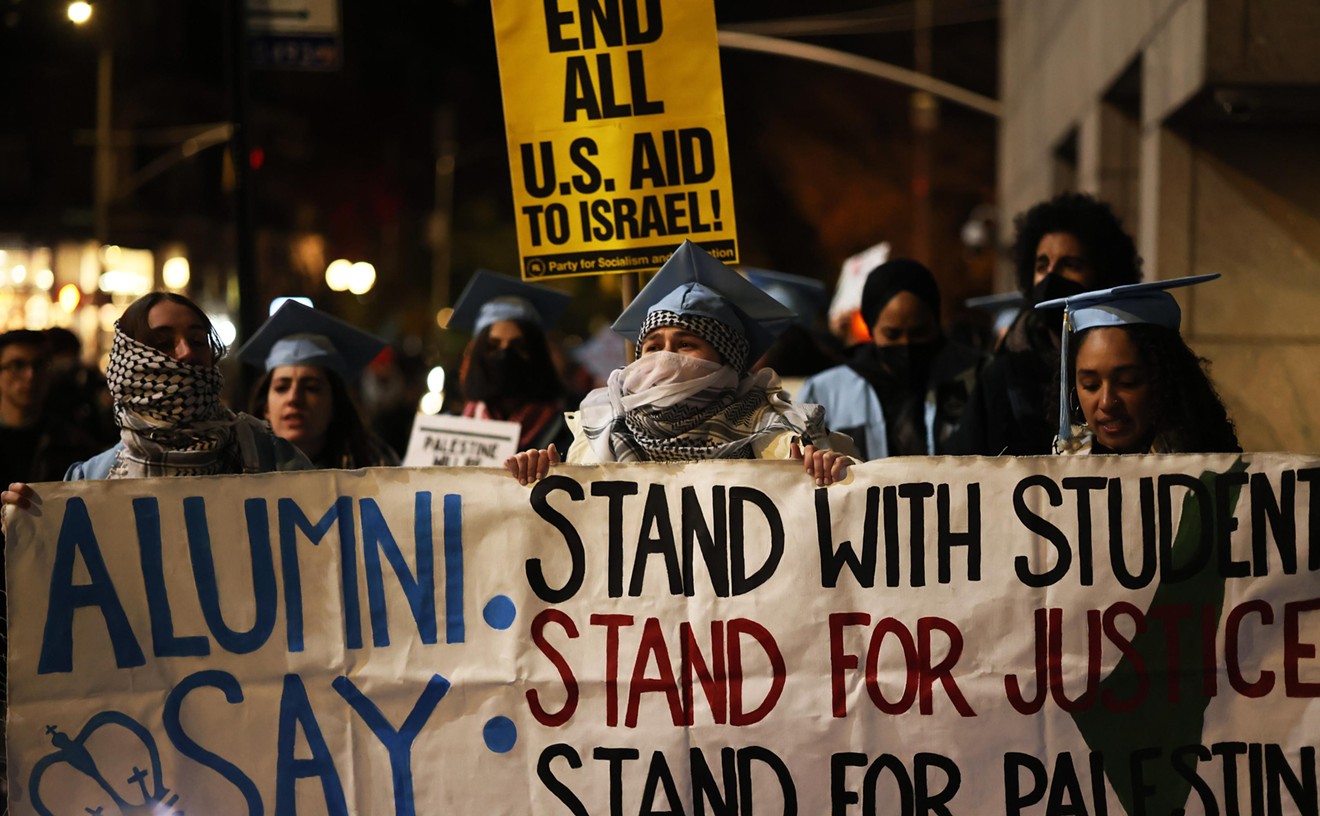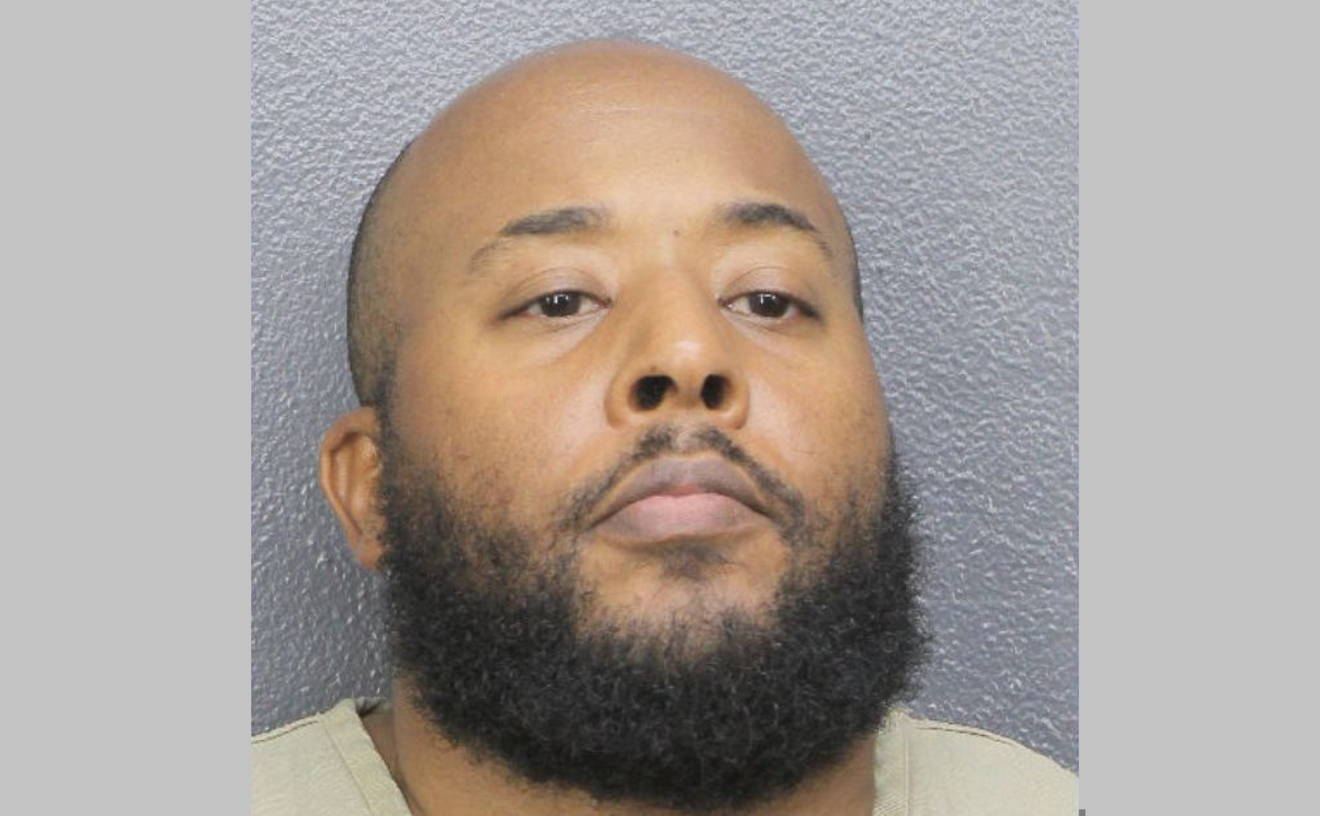Upon entering the venue for attorney Alan Dershowitz's "A Conversation About Israel" event in Coral Gables, attendees found wrapped kosher Danish pastries placed in the center of each seat. Beneath the treat sat an article written by Dershowitz on February 6, a day before his scheduled appearance for the event.
"Anti-Israel groups are trying to shut down my defense of Israel by demanding that I not be allowed to speak because of the false and disproved accusation against me that has been legally withdrawn," Dershowitz wrote in his article.
He was referring to the backlash over his planned arrival on University of Miami's campus, stemming in part from an Instagram post by Canes for Palestine, an affinity group of UM community members who advocate for Palestinian rights. Dershowitz criticized the post for describing him as "a known pedophile," writing that he would sue for defamation if he found out "who drafted or posted the false accusation."
The high-profile attorney and legal analyst has been batting back claims in that vein ever since an alleged victim of Jeffrey Epstein's underage prostitution ring claimed Epstein passed her on to Dershowitz for sex. She later retracted the claim, saying, "I now recognize I may have made a mistake in identifying Mr. Dershowitz." Another accuser claimed in court that Epstein pressured her into sex with Dershowitz when she was in her 20s — an allegation Dershowitz denied, saying he had never met the woman.
Dershowitz concluded his fiery article by asserting that were he not speaking in defense of Israel, the Epstein claims would not have been raised. He described what he sees as a double standard between himself, as a person coming to speak in support of Israel, and anti-Israel speakers who he claimed would "have been welcomed on campuses despite questionable histories."
The controversy over the Dershowitz event was unfolding long before he stepped foot in UM's Shalala Student Center for Wednesday's event hosted by UM's Students Supporting Israel (SSI) chapter. Canes for Palestine was quick to criticize the invitation on its Instagram page, declaring on January 30 that "the Zionist organization Students Supporting Israel" was bringing Dershowitz to campus.
Luna Plaza, a member of Canes for Palestine, says her group "deserves to have a platform on campus."
"There is real grief in Palestinian communities that has not just been happening since October 7," Plaza tells New Times.
Canes for Palestine also skewered Dershowitz for acting as an attorney for Epstein in the initial criminal case against him, in which the wealthy financier secured a plea deal that put him in prison for little more than a year. Dershowitz has taken on a slew of controversial clients over the years, including O.J. Simpson and Donald Trump — which he has defended as akin to a doctor operating on patients regardless of their identity.
Although SSI did not enumerate its reasons for inviting Dershowitz, his decades-long legal career and outspoken commentary about Israel were likely behind the booking.
Dershowitz has acted as an authoritative source on Israel for decades, having authored books entitled The Case for Israel, War Against the Jews: How to End Hamas Barbarism, and Defending Israel: The Story of My Relationship With My Most Challenging Client. He's amassed 60 years of legal experience as a criminal defense attorney and served as a professor at Harvard Law School.
The event opened with a discussion between Dershowitz and an event host in which he answered some common questions, such as, "Is Israel a settler colonial state?" About 30 minutes into the segment, Plaza stood up and began shouting alongside another protester.
"Thousands of parents and children are dead in the West Bank," she yelled.
The audience began booing as she was escorted out.
"When I walked out there, I knew I could've said more. Don't get me wrong. I would've said so much more," Plaza tells New Times. She claimed she wouldn't have been able to speak out in an honest fashion in the later audience Q&A period because she wouldn't be seen as "respectful," a guideline outlined by the host.
"I'm not there to be respectful," Plaza says.
Other students had a less trenchant reaction to Dershowitz on campus.
"I think that he is a genius. There are certain things that I don't necessarily agree with, and there are other matters where I wholeheartedly agree with him," says Asaf Fedida, a law student at UM and member of the board of the Jewish Comparative Law Society (which helped organize the event).
Morgan Gianola, a postdoctoral fellow in UM's psychology department, says that although he felt compelled to speak out in protest as Plaza had earlier, he knew he would also be escorted out, so he instead waited for the audience Q&A session. (New Times readers might remember Gianola as the "Chicken Man" protester at a February 2023 block party in Miami.)
After Gianola got his turn and criticized Israel, Dershowitz offered a lengthy reply and allowed Gianola to ask more questions. He then suggested Gianola write an op-ed with Dershowitz that would urge Hamas "to stop using human shields."
"It's frustrating because I would love to actually have a dialogue and debate and conversation where I could respond back and forth," Gianola tells New Times. "I would really like to write something, but it wouldn't be asking not to use human shields because that's not the issue."
At no point during the event did Dershowitz address the more salacious criticisms levied against him by protesters, including backlash over a 1997 Los Angeles Times op-ed in which he advocated for lowering the age of consent to 15 for sexual encounters, saying it "would seem like an appropriate compromise."
The discussion stayed focused on the war in Gaza.
Yigal Adhami, a student in UM's master of laws program and an avid supporter of Israel, says that given how many members of the audience were well-informed on the topic, he expected Dershowitz to tackle "a less mainstream and a more specific case for Israel."
"I left feeling the same way as I came in. I don't feel like Professor Dershowitz added any new points to the already hot debate," Adhami says.
In spite of the high tension on campus, the event played out smoothly for the most part.
Fedida described the evening as "cordial" and "very well organized," pointing out Dershowitz's willingness to hear and respond to critiques of Israel.
"As a Jew, we see that it's a little bit scary to voice your opinion, and this event being held and being so welcomed and supported shows that we're able to express our thoughts and continue engaging in the democratic process of conversing and criticizing ideas," Fedida says.
Dershowitz has another event booked in South Florida, scheduled for next week.
He's slated to appear at the Boca International Jewish Film Festival on February 17 for the premiere of The Trials of Alan Dershowitz, a documentary by director John Curtin tackling the attorney's legal career.
Politics
"Conversation About Israel": Alan Dershowitz Campus Visit Riles UM Protesters
Dershowitz threatened litigation after a University of Miami student group skewered him ahead of his campus event.
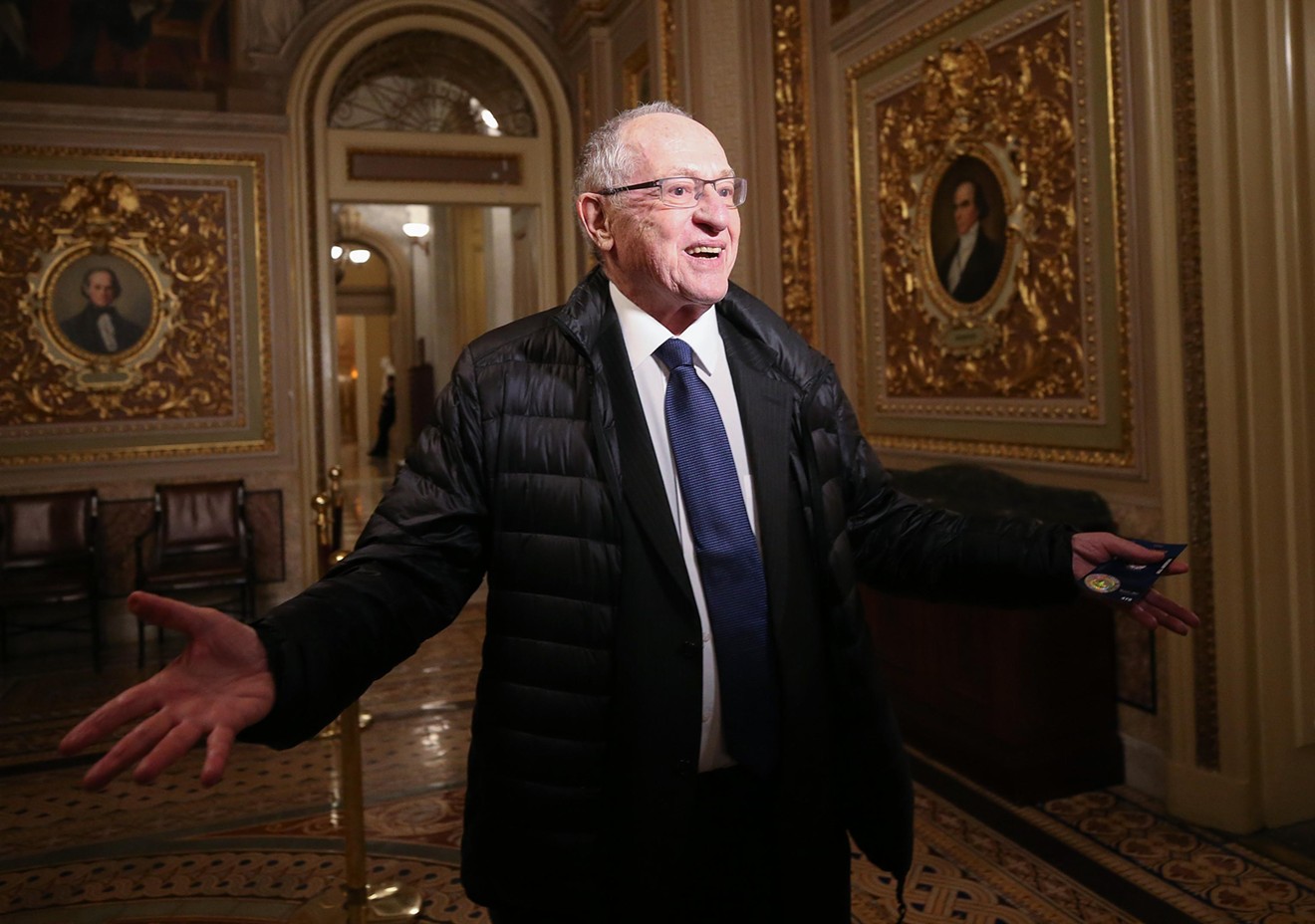
Alan Dershowitz serves as a member of Donald Trump's legal team during the Senate impeachment trial at the U.S. Capitol on January 27, 2020.
Photo by Mario Tama/Getty Images
[
{
"name": "Editor Picks",
"component": "17482312",
"insertPoint": "4",
"requiredCountToDisplay": "1"
},{
"name": "Inline Links",
"component": "18711090",
"insertPoint": "8th",
"startingPoint": 8,
"requiredCountToDisplay": "7",
"maxInsertions": 25
},{
"name": "Air - MediumRectangle - Combo - Inline Content",
"component": "17482310",
"insertPoint": "8th",
"startingPoint": 8,
"requiredCountToDisplay": "7",
"maxInsertions": 25
},{
"name": "Inline Links",
"component": "18711090",
"insertPoint": "8th",
"startingPoint": 12,
"requiredCountToDisplay": "11",
"maxInsertions": 25
},{
"name": "Air - Leaderboard Tower - Combo - Inline Content",
"component": "17482313",
"insertPoint": "8th",
"startingPoint": 12,
"requiredCountToDisplay": "11",
"maxInsertions": 25
}
]


